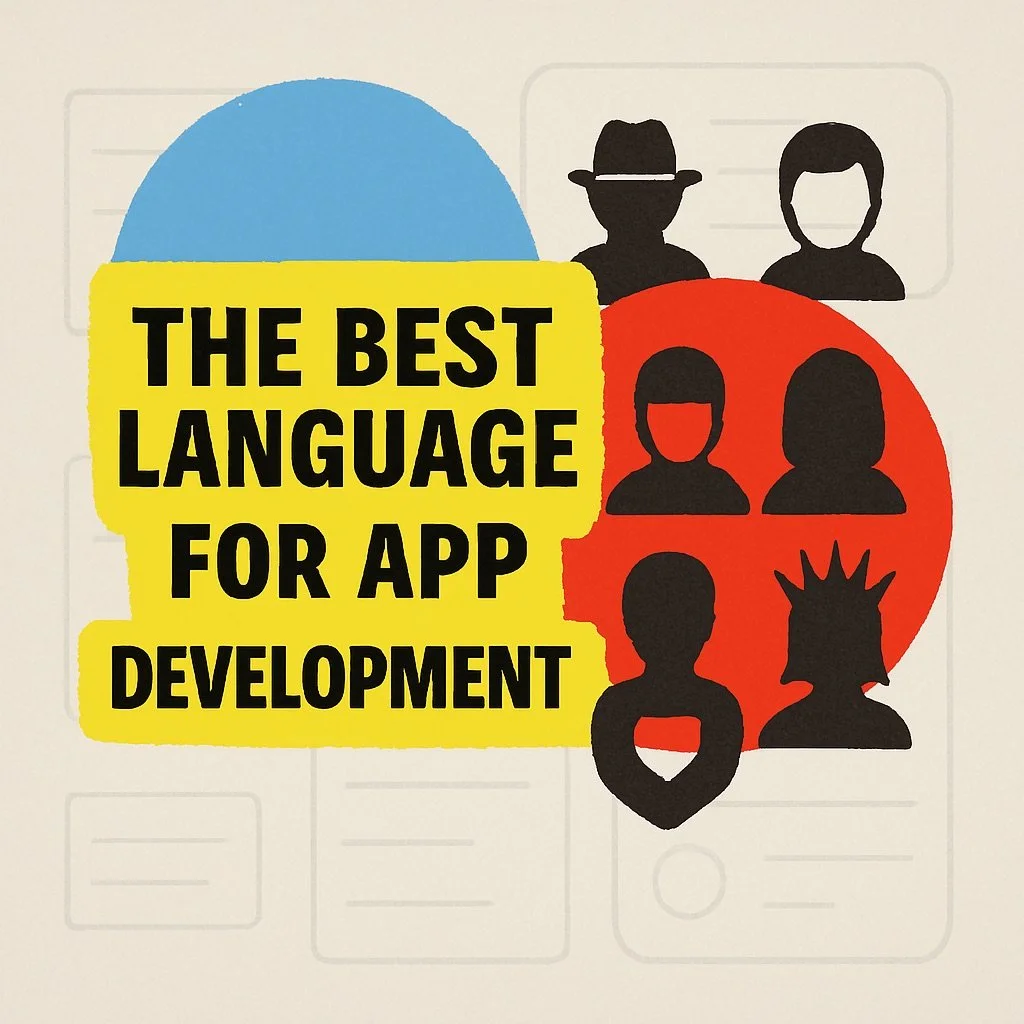The Best Language for Mobile App Development? These 6 Archetypes Win Every Time
My latest thinking on choosing the best tech for your app
Today's Tip: To dramatically increase your odds of launching a successful mobile app, you need to understand the 6 core language archetypes (explained below).
The 80/20 of app development is picking the right stack.
No matter how brilliant your idea is, none of it matters if you choose the wrong language or framework and stall halfway through the build.
Tech choices are the most important thing to nail.
Because of this, I’ve gone deep analyzing dev stacks across hundreds of real-world app builds.
And after leading and consulting on dozens of mobile projects, I’ve identified 6 core language archetypes that consistently deliver — based on speed, scalability, team availability, and budget.
Each of these is designed to solve a specific type of app problem while aligning with your long-term vision, budget, and hiring strategy.
Here are the 6 Language Archetypes:
1. Native Powerhouses (“The purist”)
Goal: Build lightning-fast apps using Swift (iOS) or Kotlin (Android) that feel completely at home on the device.
Examples:
Template: “If your app relies on complex animations, AR, or real-time camera features — go native. Swift and Kotlin are your best bet.”
Who should use: Founders who want pixel-perfect performance or device-specific integrations.
When to use: When you need maximum speed, responsiveness, and system-level access.
2. Cross-Platform Efficiency (“The unifier”)
Goal: Build once, deploy everywhere — using Flutter or React Native.
Examples:
Template: “We built one codebase with Flutter and launched on both iOS + Android in half the time.”
Who should use: Startups optimizing for time and budget without sacrificing too much UX
When to use: When speed-to-market and cost-efficiency matter more than absolute perfection
3. Web-to-App Converters (“The repurposer”)
Goal: Wrap your existing web product into a mobile app with tools like Capacitor or Cordova.
Examples:
Template: “We already had a web dashboard — turned it into a mobile app in 3 days with Capacitor.”
Who should use: SaaS tools, internal dashboards, or MVPs built on web tech.
When to use: When you already have a working product and need mobile reach fast.
4. Game Engines & 3D Builders (“The creator”)
Goal: Use Unity or Unreal to build rich mobile games or immersive experiences.
Examples:
Template: “Our real-time multiplayer game runs on Unity — it handles graphics, networking, and monetization out of the box.”
Who should use: Game studios, educational tools, AR/VR creators.
When to use: When you need high-performance rendering, physics, or 3D worlds.
5. Low-Code & No-Code Tools (“The hacker”)
Goal: Launch functional apps using Glide, Adalo, or Bubble — no dev required.
Examples:
Template: “We built our first working app with Adalo before hiring any devs.”
Who should use: Non-technical founders testing ideas fast.
When to use: When validating MVPs, landing first users, or proving traction before raising.
6. Hybrid Stack Combos (“The strategist”)
Goal: Use a mix of languages to get the best of each world — e.g., native shell + embedded webviews.
Examples:
Template: “We used Swift for the app shell and React for content — lightning fast and super flexible.”
Who should use: Teams balancing long-term scalability with short-term speed.
When to use: When you need the flexibility of both web and native in one build.
The reason these work is because each one solves a specific business case — and when matched correctly to the project, they unlock huge wins in speed, cost, and flexibility.
It’s common for pro dev teams to layer these, like combining #2 Flutter with #6 hybrid strategies for scale.
From now on, when you evaluate your app’s tech stack, you'll start recognizing these patterns everywhere.
Picking the right language is the key to building fast, smart, and within budget. And choosing wrong? That’s how apps die mid-build.
Go back and look at successful apps you love — I guarantee they were built using one of these 6 archetypes.
PS – If you're building in 2025 and want to know how much will your app cost, book a free zoom call with me.
People also read:
The future of app development is not what you think...
How to Build Your Dream App Without Blowing Your Budget for Mobile App Development
This Simple Project Planning Trick Will Instantly Improve Your App Development Process
